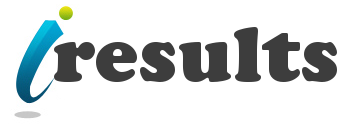
iResults Kiosks at the Hollis Fast 5K.
Here's a photo of the iResults Kiosks at the Hollis Fast 5K in Hollis, NH. The kiosks are used to lookup results by typing in a bib # or someone's last name. In addition to looking up individual results, someone can also lookup the top finishers overall (for both male and female), the top finishers in each division, race statistics and demographics, age graded results and overall information about the event such as the number of finishers, the total number of people entered, etc.
The yellow box in the middle of the table is called an Oscelot. The Oscelot
is a powerful on-site server that drivers the Kiosks. It is capable of wirelessely
connecting to the internet to download race results. When there is a poor internet
connection, or no internet, the Oscelot can either connect directly to the scoring
computers, or a USB thumb drive can be used to load results.
With the wireless nature of the iResults systems, the powerful on-site server, and
the ability to transfer results via the internet, intranet, or manually, the
iResults kiosks work in virtually every environment and across virtually every
type of event.
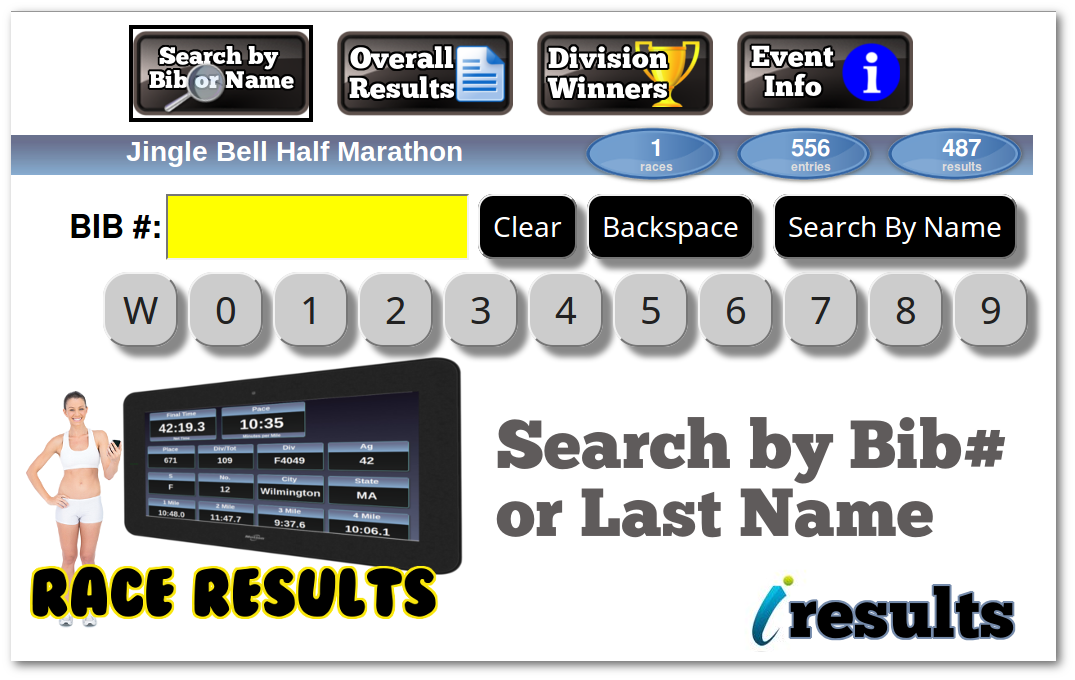
The picture to the right shows a close up of the kiosk home page. The buttons at the top allow
someone to quickly jump between the major functional capabilities of the Kiosk. A bib number or
last name can be entered and results are immediately displayed. The blue-bar directly underneath
the top buttons shows the event name along with the number of races, the total number of
people entered and the total number of finishers.
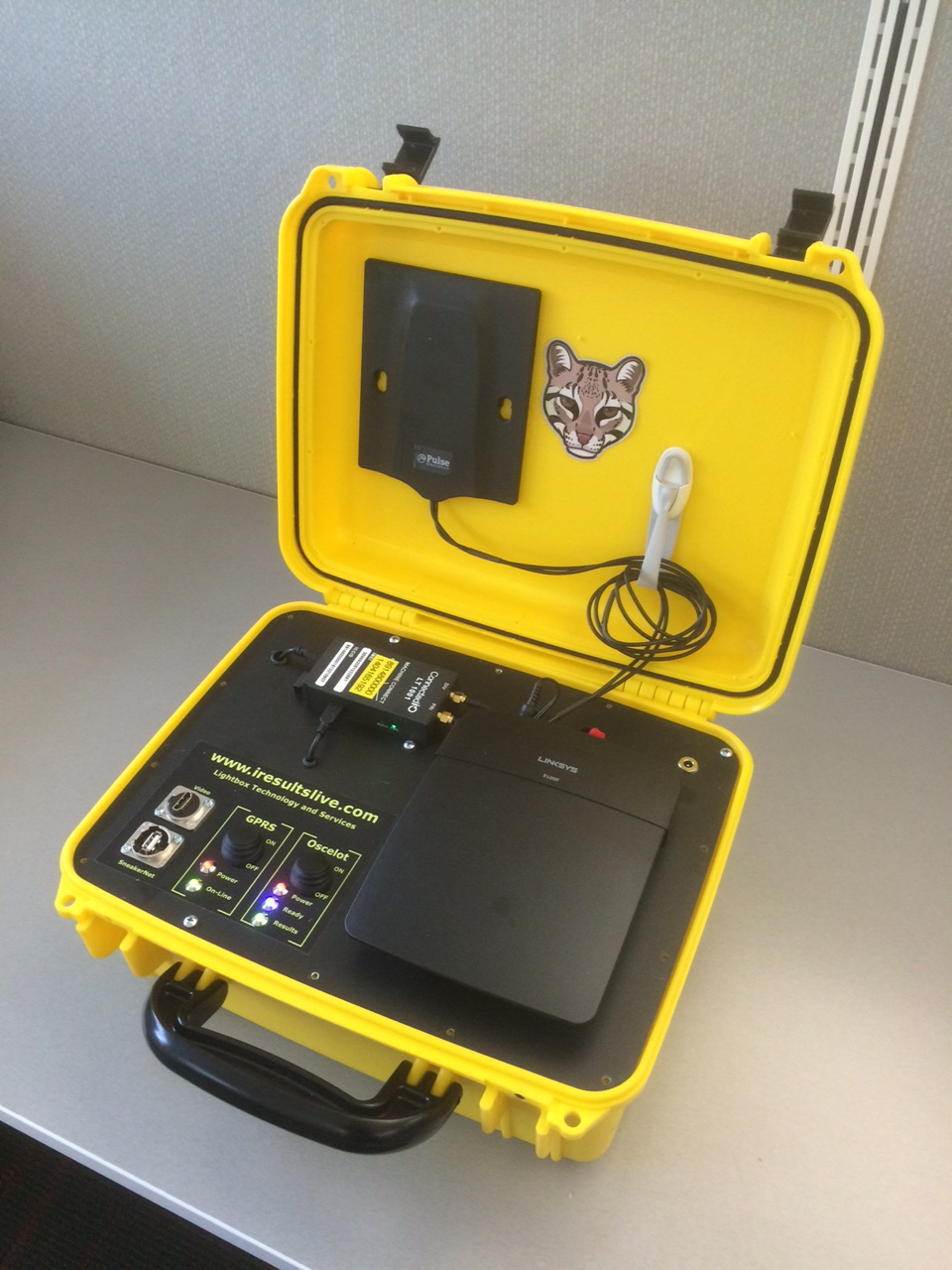
The Oscelot: On-Site Server that Drives iResults
The Oscelot is the component that drives on-site raceday registration, the results kiosks, the iResults Clocks and the walkup RFID TVs. The Oscelot consists of a quad-core ARM-based computer system (Raspberry PI) running the Linux operating system with a LAMP (Linux, Apache, MySql, PHP) stack. Its connected to the internet using a cellular modem which employs a super-sensitive, omnidirectional range antenna.
The main purpose of the Oscelot is to provide an on-site computer system that can download
and store race results, and provide those results to the on-site kiosks, TVs and iResults
clocks. Using cloud-based servers for this task does not work well because access to the cloud
is severely restricted at races because many people are using their cellphones and the
resulting interference disrupts cellular access.
The major specifications of the Oscelot are:
- System on a chip (SoC): Broadcom BCM2836 (CPU, GPU, DSP, SDRAM)
- CPU: 900 MHz quad-core ARM Cortex A7 (ARMv7 instruction set)
- GPU: Broadcom VideoCore IV @ 250 MHz. OpenGL ES 2.0 (24 GFLOPS); 1080p30 MPEG-2 and VC-1 decoder (with license); 1080p30 h.264/MPEG-4 AVC high-profile decoder and encoder
- Memory: 1 GB (shared with GPU)
- USB ports: 4
- Storage: 8 Gigabyte MicroSD
- Network: 4 port wireless router with optional 8 port expansion.

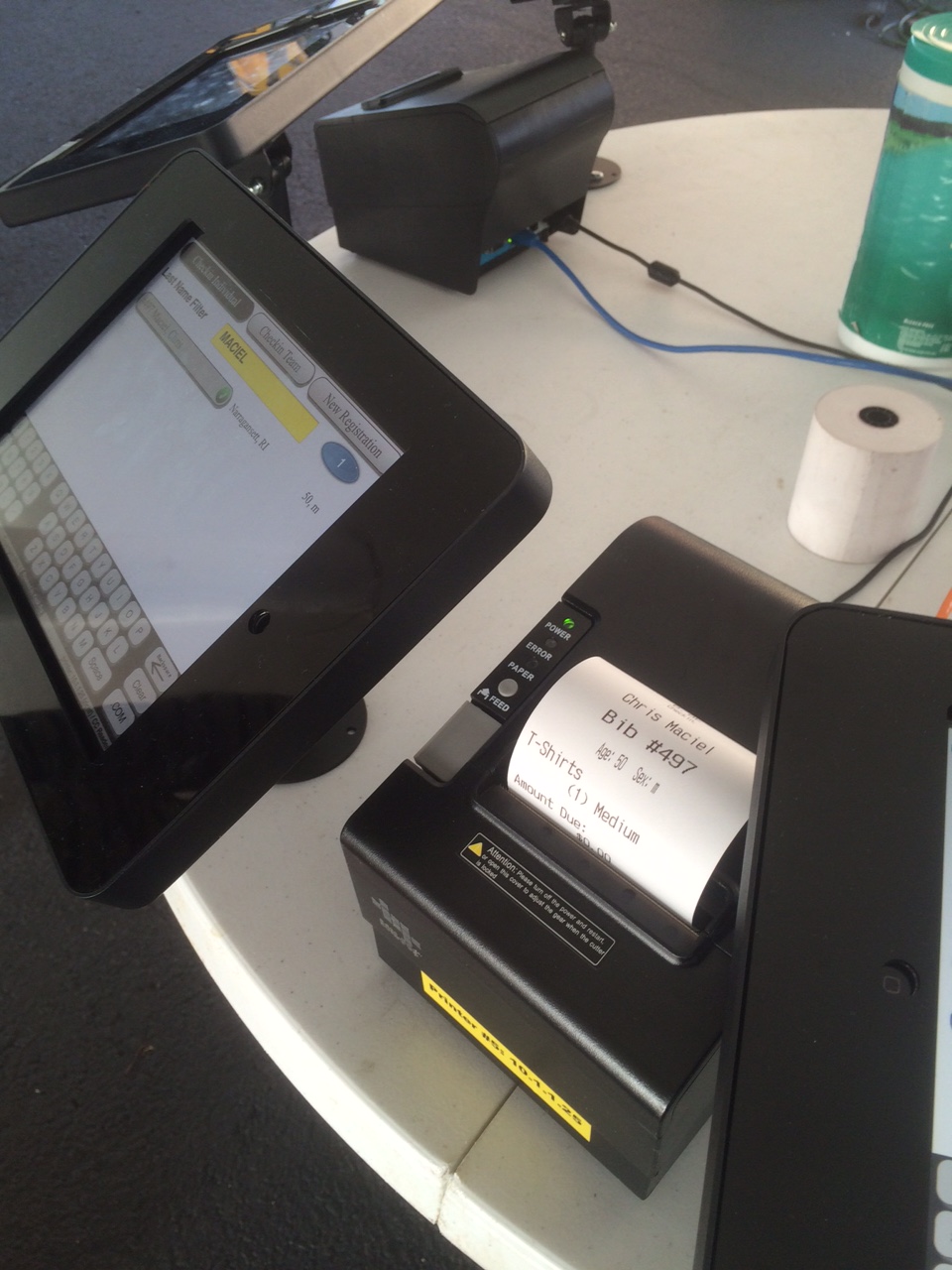
On-Site High Speed Printers
The iResults system comes with up to 4 high-speed printers with auto-cut. More can easily be added but we have found that 4 printers is sufficient to support 8 kiosks. Each kiosk can be configured to access any printer. This means that you could have 1 printer to service all kiosks. Being able to move printers between kiosks is important because it provides a backup mechansim in the event a printer breaks or runs out of paper.
The printers operate in 1 of 3 modes:
- Results mode: In this mode, the printers are used to print individual results.
- Checkin mode: Checkin mode is used before the race starts and it's main purpose is to allow someone to print a receipt that shows them their personal information, any merchandise they purchased and their assigned bib #. This feature can be used to obsolete the use of using paper sheets taped on a well. The checkin feature also features automatic email and text messaging to alert the bib holder that someone is picking up their packet.
- Registration mode: The kiosks can also be used to allow someone to register for the race. They select their race, enter their personal information, and decide how they want to pay. At the end, a receipt is printed that shows them their personal information, their assigned bib # any merchandise they purchased, and a "balance due" section that contains the amount of money they must pay before they get their bib. When paying by credit card, the balance due will be zero. But if they choose to pay by cash or check, there will be a balance due.
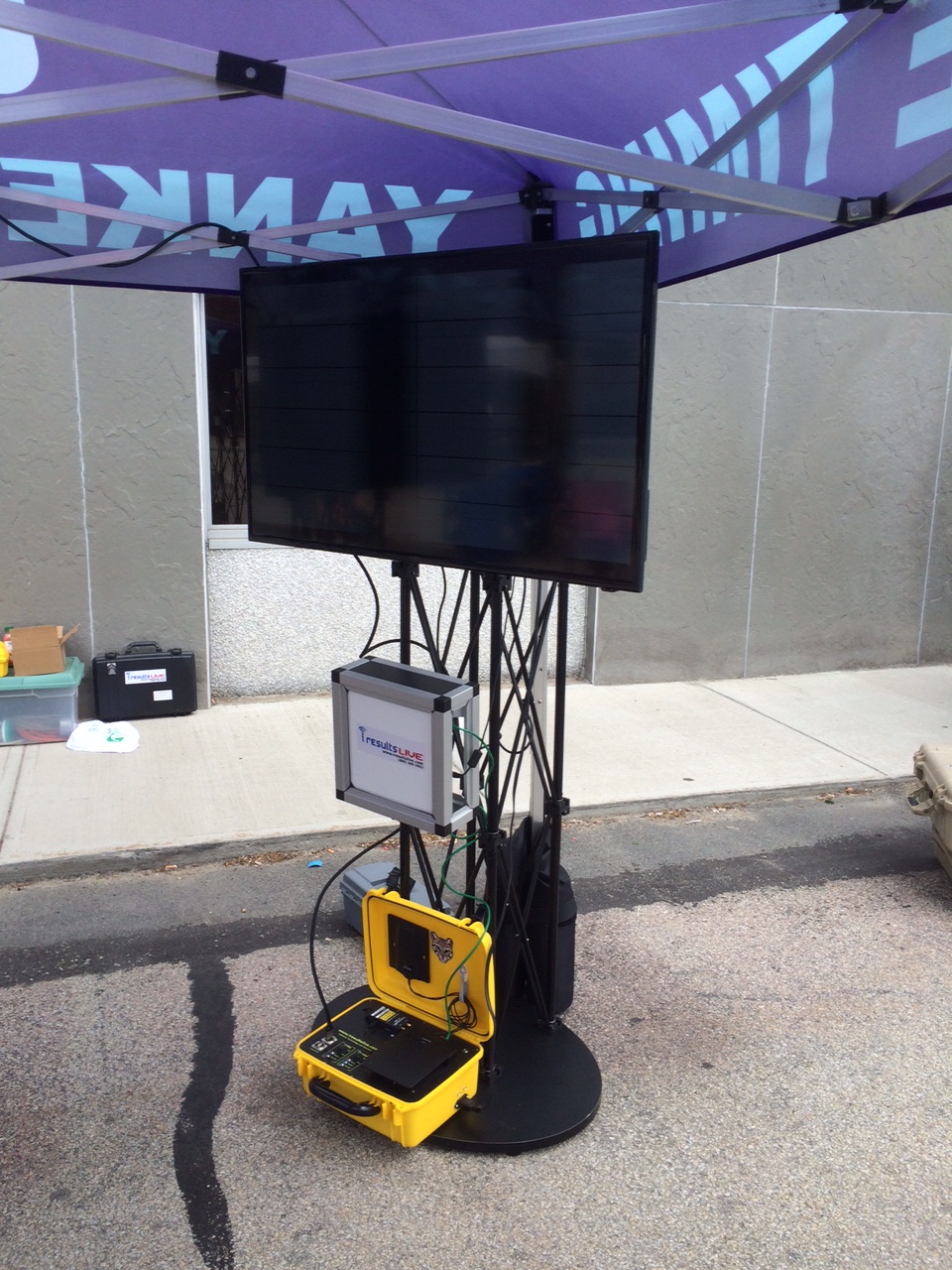
Bib-Reading Walkup TV Results.
This is a system that consists of a large TV, the Oscelot and an RFID reader. The RFID reader reads bib numbers and sends them to the Oscelot. The Oscelot drives the TV and displays the results for the bib numbers read by the reader.
In simpler terms, this system will automatically display the results for anyone
who is wearing a bib and is standing in front of the TV. Their results will remain
on the TV as long as that person is physically standing in front of the reader.
When they walkup away, their results disappear allowing others to walkup up to view
their results.
This is the simplest and the most efficient method for presenting results to a large
crowd. Most people just want to know their time and their finish place (overall
and withing their division). This information is displayed on the TV. If the athlete
wants more information, then can use the on-site kiosks to get full results along
with a print out.
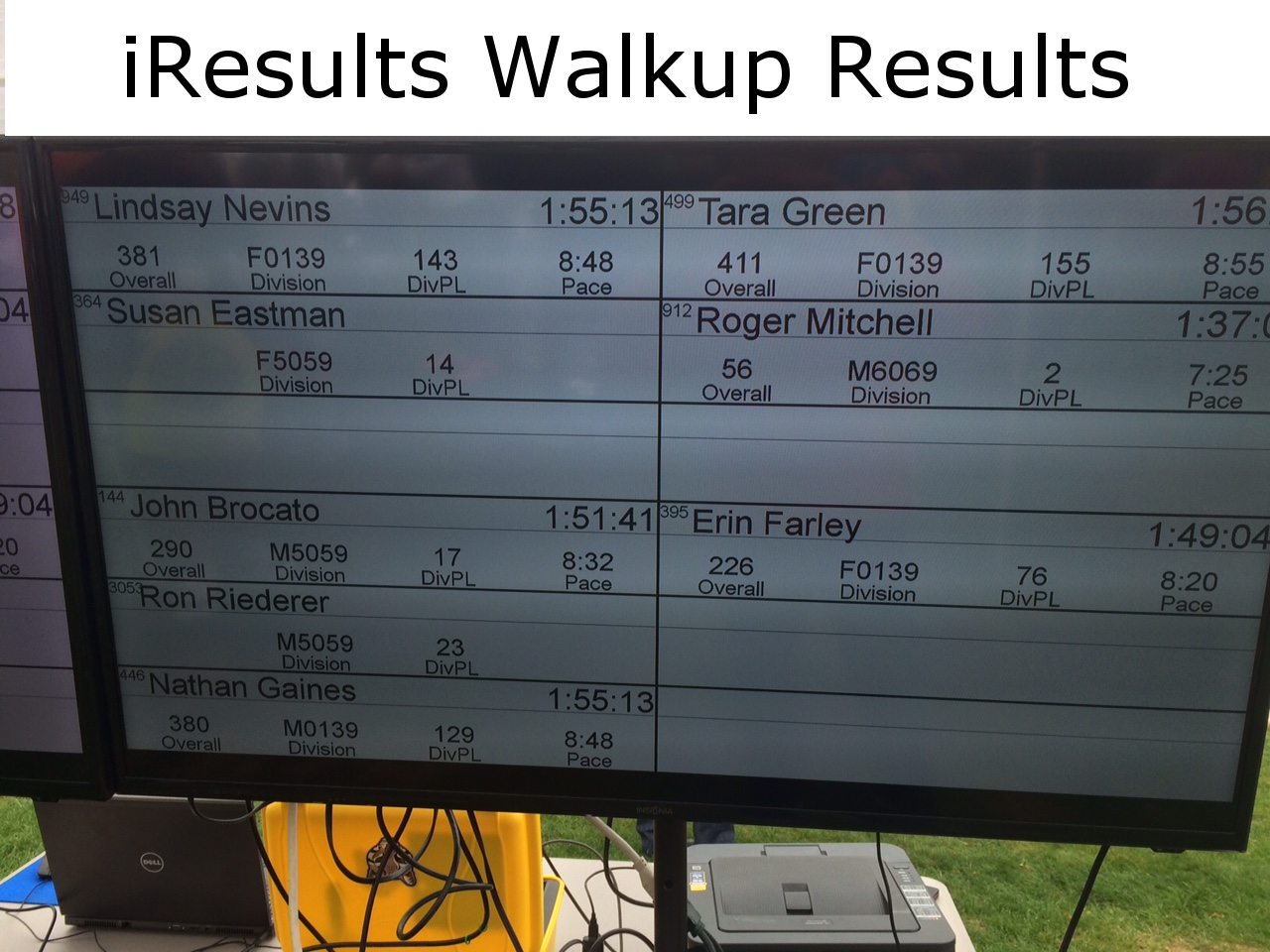
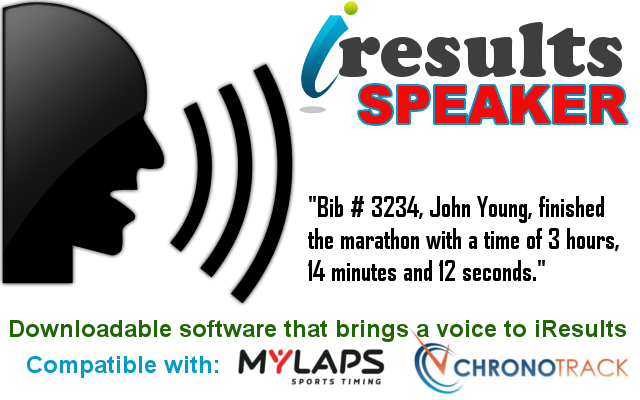
Yes, the iResults System Speaks!
There is an optional module that allows the iResults system to speak. Simply load the iResults Talker application on your Windows machine and connect an amplifier to the audio jack. You can access and download the talker application by speaking to your Lightbox representative. The Talker application uses the currently enabled TTS (Text To Speech) modules from your windows computer so you will need to download and install one of those too.
If enabled the talker application will not only announce someones current finish time,
but it will also datamine and locate previous results. It will then announce if you
ran faster this year or last year.
Combined with the announcer functionality, the talker application will announce a name
and bib number simply by approaching the RFID reader. This is a great and fun way to
implement a chip checker at your events.
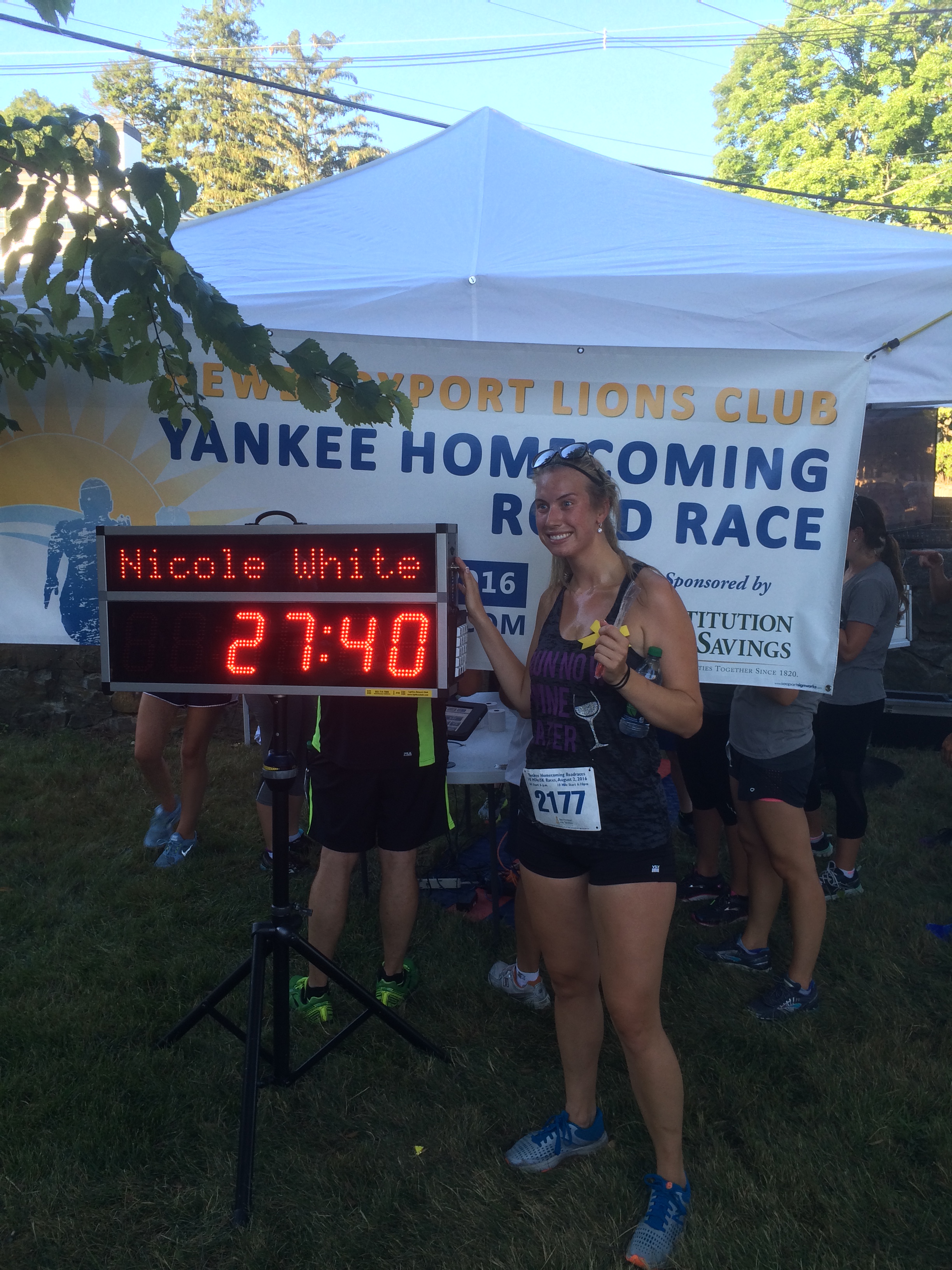
The iResults Interactive Clock
This is the same type of clock used at the finish line except this one has a large keypad on the side. Just enter a bib # into the keypad and the athlete's name and time are displayed. The size of the digits are 6.5" high. There are 6 digits on the front with a 4" alphanumeric display on top. This clock communicates wirelessly to the Oscelot and downloads a complete set of results so the lookups are fast regardless of how bad the internet connection is.
These clocks are custom built by the Engineers at Lightbox and are exclusively available to
events which use the iResults systems. This is a great way to promote your sponsors as in the
photo shown here. Each of these pictures ends up on Facebook, Instagram, Snapchat and other
social networking sites so it gives your event and sponsors a unique viewership.
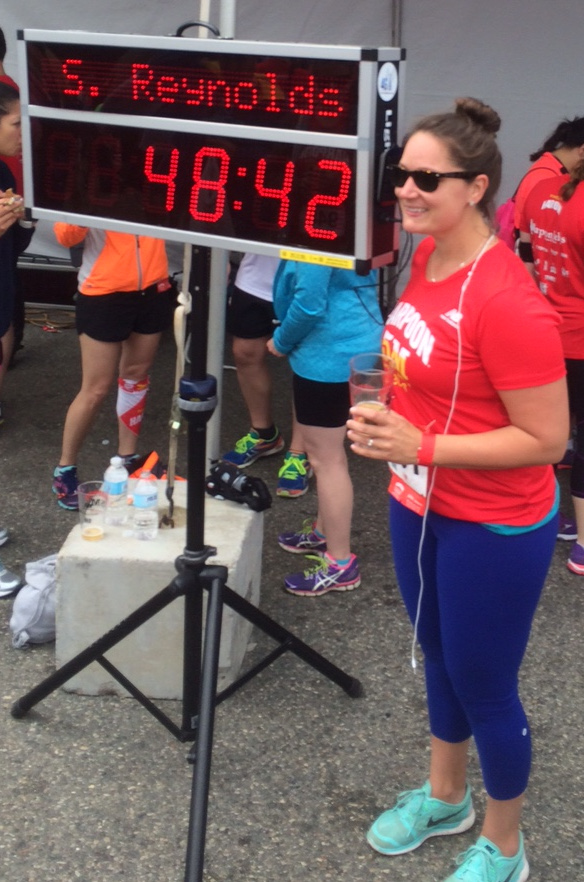
The clock on the left was at the Yankee Homecoming 10K Road Race in Newburyport, MA. The
race organizers gave us a banner which we hung behind the clock. The clock on the right
was at the Harpoon 5 Mile Road Race in Boston, MA. This clock was setup in the beer garden.
People could come over at anytime, type in their bib number using the attached keypad on the
side of the clock, and see their name and finish time. People would then use their personal
phones to take and share the photos.
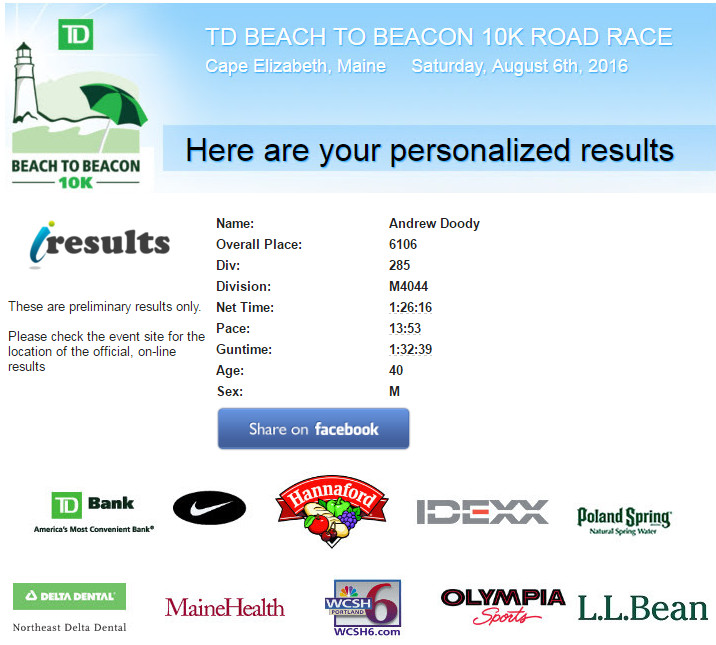
Customized Results Email
This is an example of a fully customized email message containing personalized results. As you can see, this email was from the Beach To Beacon Race in Cape Elizabeth, ME. The design of the email matches that of the event website to keep a consistent look and feel to all the communications to the athletes. This particular email also contains a number of sponsors logos at the bottom. This is another way that your event sponsors can gain exposure to the event participants as well as others.
